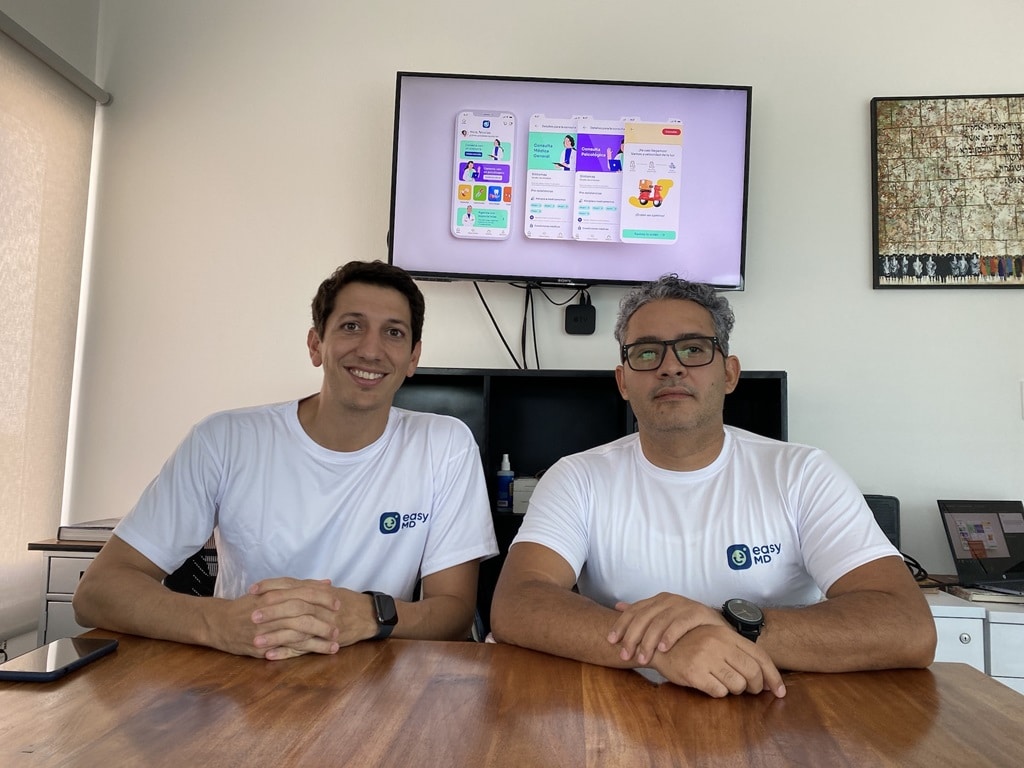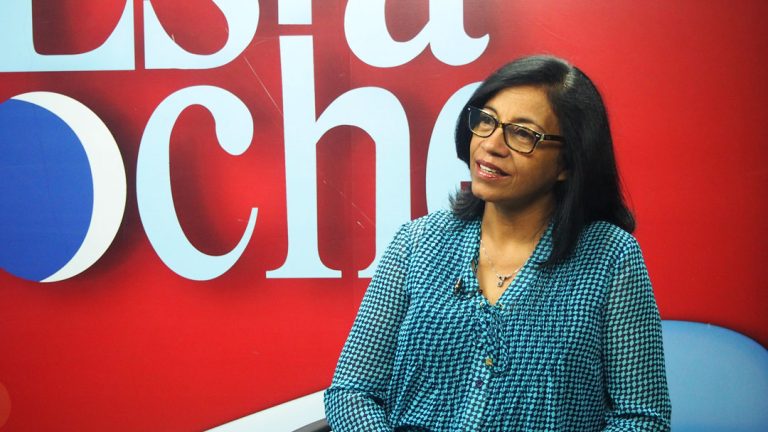27 de marzo 2017

Nicaraguan Creates EasyMD, An App for Telemedicine Services

PUBLICIDAD 1M
PUBLICIDAD 4D
PUBLICIDAD 5D
“I hold the State responsible for the threats on my life” Lottie Cunningham demands protection for human rights advocates in Nicaragua

Lottie Cunningh
Lottie Cunningham won’t remain silent. Despite the death threats she’s received, she continues to denounce the inaction ofComandante Daniel Ortega’s government in the face of the invasion of indigenous lands of Nicaragua’s Caribbean region. This situation has left a toll of more than 32 indigenous people murdered since September of 2015.
The threats against Cunningham - director of the Center for Justice and Human Rights of the Atlantic Coast [Centro Por la Justicia y Derechos Humanos de la Costa Atlántica (Cejudhcan)] - were sent via her Facebook page. They stated that if she continued denouncing the land invasion in the media, she would be killed.
“If something happens to us, we’re going to hold the Nicaraguan State responsible, because they have an obligation to protect and defend human rights advocates,” stated Cuninngham in an interview broadcast on the Esta Noche television program.
Was there any type of identification on these threats? Who did they come from?
I received the threat directly through the Messenger application on Facebook. We don’t know who the sender is. Nonetheless, judging by the way the threat was made, we believe that it came from groups in league with the government. We hold the State of Nicaragua responsible for these threats. We’ve been living with this criminalization for two years.
Why would people with ties to the Sandinista Front make these threats against your person and the organization Cejuchan?
As advocates for human rights, we’ve been working for more than twenty years specifically in defense of territorial rights and the protection of natural resources. In these past years, from 2007 to 2015 and up until today, the criminalization of the indigenous leaders working to defend their territories has increased. As part of this criminalization, we’ve been threatened for defending the indigenous peoples.
The fact that the threats in this case originate from the political party that exercises power in Nicaragua makes them quite serious. Do you believe there’s a real risk to your life?
Of course. It’s the duty of the government in power and the Nicaraguan State to protect the advocates so that we don’t face obstacles, including defamation or criminalization, in our work exercising the defense of the indigenous peoples. There’ve already been prior instances in which they’ve murdered our people; now they’ve threatened us on Messenger that they’re going to murder us in the same way that they killed the prior indigenous leaders.
According to your data, at least 32 Miskito Indians have been killed and 40 kidnapped. Has there been any response from the authorities to this wave of violence that has bloodied the Caribbean region?
We’ve exhausted all of the internal mechanisms and even the international appeals to the Inter-American system. We have filed formal complaints with the National Police, but in December they rejected 49 cases where we filed complaints. The police officer informed us that they had received orders from above not to attend to these cases. Even the precautionary measures ordered by the Inter-American Commission for twelve indigenous communities have been ignored by the Nicaraguan State.
They were also issued for members of your organization.
Yes, that’s right. For six members of Cejudhcan. The government hasn’t put in practice any measures to diminish the threats that the communities, as well as ourselves, face.
Photo: Carlos Salinas and Lottie Cunningham on “Esta Noche” Photo by Olga Sánchez
The current atmosphere for human rights advocates in Nicaragua is pretty hostile. We’ve seen what happened with Vilma Nuñez, the president of Cenidh, and the threats that Francisca Ramirez, the leader of the anti-canal movement has denounced. In the context of Central America, there’s been the murder of Berta Caceres in Honduras. How does Lottie Cunningham feel as a woman advocate within this environment?
We’re sorry that they continue to intimidate us and discredit the work that we do, but we’re very confident of our labor in pursuing justice for the indigenous peoples. In this specific case, it involves the defense of their territories, which is a fundamental human right for these indigenous peoples. So these intimidations make us feel vulnerable, but they’re not going to make us take a step backwards. We’re going to continue our work and achieve clear territorial titles for the indigenous lands.
If something should happen to a member of your organization or to yourself, would you hold the Sandinista Front responsible?
In that case we’d blame the Nicaraguan State, because it has an obligation to protect and defend human rights advocates.
Beyond filing this complaint, have you received any type of protection from the local authorities.
At no time have the competent authorities approached us to implement the necessary measures, such as the precautions ordered by the Inter-American Commission. They haven’t even implemented the recommended precautionary measures for the twelve communities that are at high risk. The communities and ourselves continue suffering threats and harassment, as we saw during the month of February.
What security measures are you taking to protect yourselves as an organization?
We’re sharing the information with the public so that they’re aware of the threats we’re receiving. We’ve also filed complaints with the Inter-American Commission and the Inter-American court of human rights.
You’ve been denouncing illegal land trafficking for years. Who’s involved in this trafficking?
We’ve requested an investigation of the process, because we know that the State has a report with a list of names. But we’re aware of others as well. The report was turned over to the Inter-American Commission as a report on the completion of the precautionary measures. We’re waiting for the State to investigate and clarify the cases, and to point out who are involved in illegal land sales of indigenous territories.
According to an investigation carried out by Confidencial, members of the Sandinista Front are promoting the land invasion in the Caribbean region. Are you aware of this situation?
What we’ve done is to file complaints with the competent authorities. Nevertheless, they haven’t prospered; the authorities continue to omit them. The communities have requested that those who sold this land, including indigenous people, should be sanctioned. This process should be stopped by sanctioning the buyers, because no one should be exempt from the law.
How can this problem be solved?
For us the solution lies in registering clear land titles, and that means a process of characterizing the third parties. In the case of the colonists, who have engaged in massive invasions, the law tacitly states and the Penal Code establishes that usurpation of the communal lands is an infraction of the law. We hope that the authorities, in the face of the denunciation that we’ve made, will proceed to investigate the material and intellectual authors.
Do you believe that the political will exists to go forward with the clear land titles?
We haven’t seen any political will on the part of the government. The mechanisms that we’ve had are the precautionary measures and in the case of the Courts the provisional measures, establishing that the necessary steps need to be taken. These measures are needed not only to protect lives, but because territoriality they need to be considered from the perspective of cultural identity. The Court orients the State of Nicaragua to resolve the land titles. The State informed in December of 2015 that they had passed a decree to form an inter-institutional commission and initiate the process. However, up until now, they haven’t called up either of the communities or any representatives.
This article has been translated from Spanish by Havana Times.
Archivado como:
PUBLICIDAD 3M
Confidencial es un diario digital nicaragüense, de formato multimedia, fundado por Carlos F. Chamorro en junio de 1996. Inició como un semanario impreso y hoy es un medio de referencia regional con información, análisis, entrevistas, perfiles, reportajes e investigaciones sobre Nicaragua, informando desde el exilio por la persecución política de la dictadura de Daniel Ortega y Rosario Murillo.
PUBLICIDAD 3D